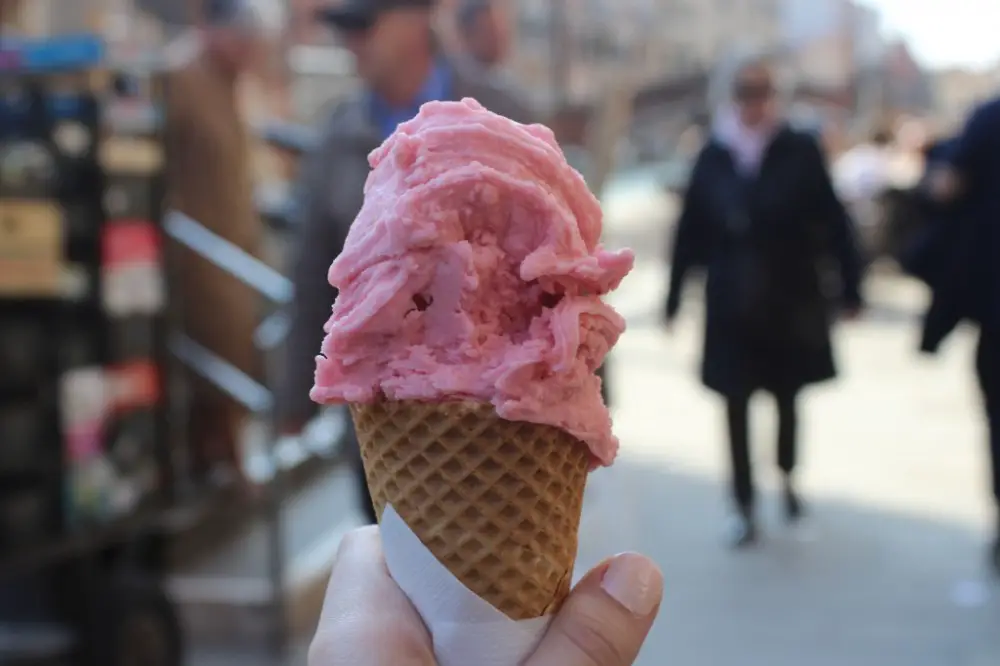There are few things as excruciating as biting into cold ice cream (of course) and feeling a terrible jolt of pain, especially if you’ve been relaxing for a while and haven’t visited the dentist. Researchers from the United States and Germany have found the root of this pain in a study : the problem lies in the specific cells in the teeth, the odontoblasts , which detect cold temperatures.
These cells are rich in special cold-sensitive proteins that are responsible for alerting the brain when you are eating or drinking something cold. According to the researchers, the development of drugs to specifically target these sensors could eventually pave the way for new treatments for cold sensitivity . Additionally, the findings also explain an ancient home remedy for toothache, clove oil , which contains a chemical that blocks cold-sensitive protein.
Why does biting an ice cream hurt?
Sensitivity to cold is often more extreme among people with cavities , where part of a tooth’s protective enamel wears away due to films of bacteria and acid. An estimated 2.4 billion people, a third of the world’s population, have untreated cavities in their permanent or “adult” teeth.
The researchers, led by neurobiologist David Clapham of the Howard Hughes Medical Institute in Maryland, did not originally set out to study teeth. They wanted to focus on so-called ” ion channels ,” which are pores in cell membranes that act as gateways for molecules.
When these channels detect a certain signal, such as a chemical message or a change in temperature, they respond by closing or opening wide. The latter case allows ions to enter the cell, creating an electrical pulse that travels to other cells and allows the body to communicate information.
About fifteen years ago, researchers determined that one of these ion channels, TRPC5 , was very sensitive to cold. However, it was not clear where TRPC5 was used. The scientists were able to rule out the operation on the skin, at least, publishing in a 2011 paper that mice lacking the ion channel could still feel the cold.

Why do teeth feel cold?
Inspiration finally came when the team was having lunch. The teeth are another area of the body with sensitivity to cold, and one that, at the time, functioned in a way that was not entirely clear.
The main theory of how teeth feel cold involved tiny channels within teeth that contain fluid that moves when the temperature changes. It was thought that perhaps the nerves could sense the direction of this movement and thus indicate whether a tooth was hot or cold. Although the truth is that there was no direct evidence to support it.
The problem is that fluid movement in teeth is particularly difficult to study, as accessing the inner workings of teeth involves cutting through hard layers of enamel and dentin without pulverizing the soft pulp that it protects.
Despite these challenges, when Professor Clapham and his colleagues examined adult human teeth, they found that they contained TRPC5 ion channels, as they had previously guessed. Additionally, TRPC5 is more abundant in decayed teeth , which are markedly more sensitive to cold than their healthy counterparts.
To investigate further, the scientists conducted experiments on live mice, recording their neural activity when the teeth came into contact with an ice-cold solution.
In normal mice, the team found that the cold triggered nervous activity. However, mice that lacked TRPC5 or that had been treated with a chemical that blocked the ion channel did not react in the same way, suggesting that TRPC5 is key to detecting cold in teeth.
Finally, the researchers traced the location of TRPC5 to a specific type of cell in teeth, odontoblasts , which can be found between the pulp and surrounding dentin. When someone bites into cold ice cream, especially if they have cavities and exposed dentin, it is these TRPC5-filled cells that pick up on the cold sensation and send pain signals that are fired to the brain.
